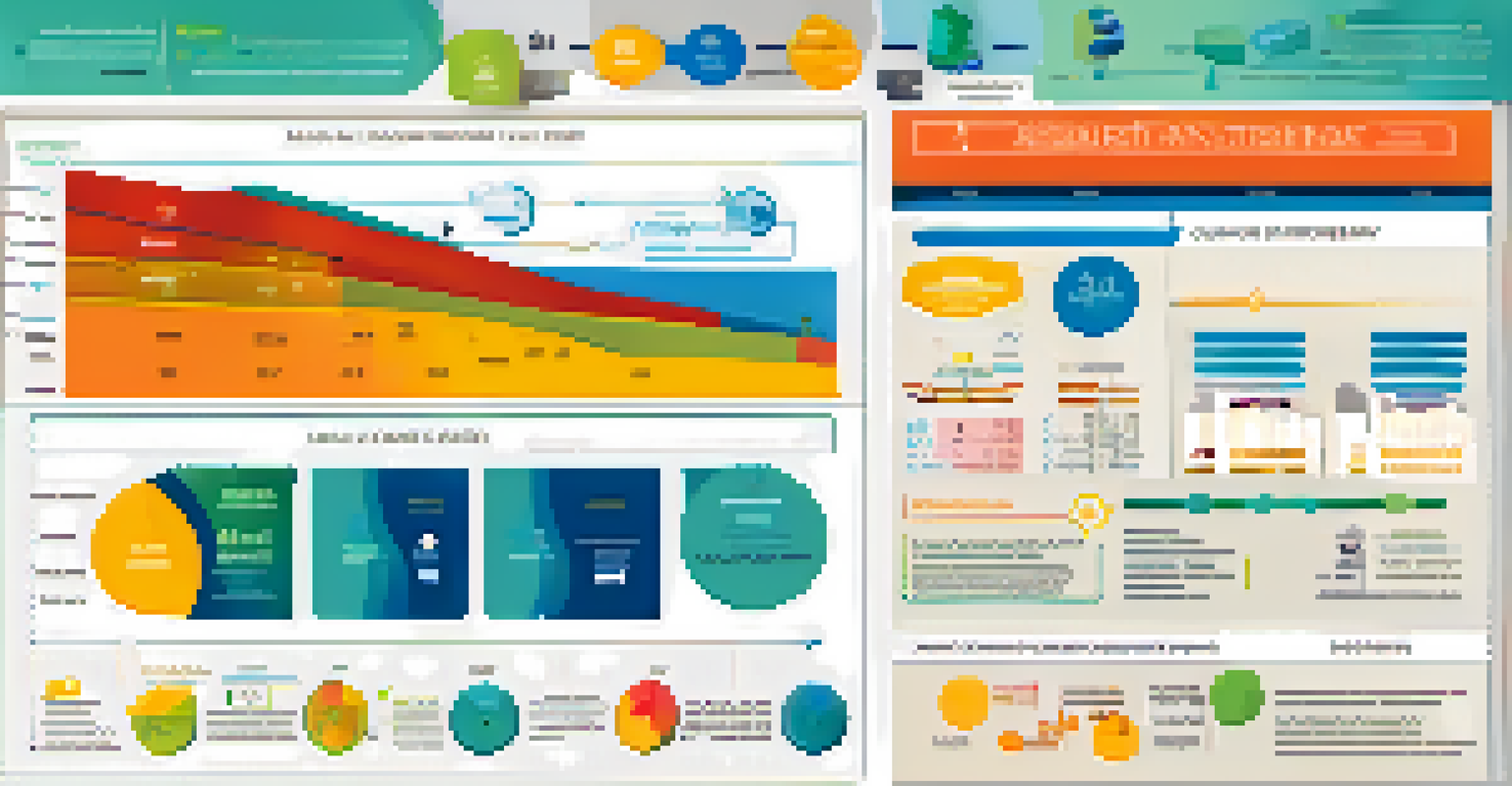Understanding HOA Financial Statements and Reports

What Are HOA Financial Statements and Reports?
Homeowners' Associations (HOAs) manage shared community interests, and their financial statements are crucial for transparency. These documents detail the organization's financial health, showcasing income, expenses, and overall budget performance. Understanding these reports can empower residents to be more involved in their community's financial decisions.
The essence of strategy is choosing what not to do.
Typically, HOA financial statements include balance sheets, income statements, and cash flow statements. Each of these components plays a role in illustrating the financial status of your community. For example, a balance sheet reflects assets and liabilities, giving insight into what the HOA owns and owes.
By familiarizing yourself with these terms and their implications, you can better assess how your HOA is managing its resources. This knowledge not only builds trust between residents and the board but also fosters a sense of community involvement.
The Importance of the Balance Sheet
The balance sheet is a snapshot of the HOA's financial position at a specific point in time. It lists all the assets, such as cash and property, alongside liabilities like loans and unpaid dues. Understanding the balance sheet is essential because it shows whether the HOA is in a healthy financial state or if there are potential red flags.

For instance, if liabilities significantly outweigh assets, this could indicate potential financial trouble. Homeowners should pay attention to this balance to ensure their community's long-term viability. A well-maintained balance sheet can help the HOA plan for future expenses and capital improvements.
Understanding HOA Financial Reports
Familiarizing yourself with HOA financial statements, such as balance sheets and income statements, empowers residents to engage meaningfully in community financial decisions.
In short, a solid grasp of the balance sheet can guide residents and board members alike in making informed decisions. It serves as a foundation for understanding the larger financial picture of the HOA.
Understanding the Income Statement
The income statement provides a detailed account of the HOA's revenue and expenses over a specified period, typically a fiscal year. This document highlights how much money the HOA generates from dues, special assessments, and other income sources. By analyzing this statement, residents can see where their money is going and how it is being utilized.
Financial literacy is not an end in itself, but a means to an end.
For example, if a significant portion of the budget is spent on maintenance, it could indicate a proactive approach to community upkeep. Conversely, if revenues are low, it may prompt discussions about increasing dues or finding new income sources. Recognizing these patterns can empower homeowners to engage in meaningful discussions about budget allocations.
Ultimately, the income statement is vital for accountability and transparency within the HOA. By reviewing this document, residents can understand financial performance and advocate for responsible spending.
The Role of the Cash Flow Statement
The cash flow statement tracks the movement of cash in and out of the HOA. It breaks down cash flow into operating, investing, and financing activities, providing a clear picture of financial health. Understanding this statement is crucial because it reveals whether the HOA can meet its obligations and fund future projects.
For instance, if an HOA has a positive cash flow, it indicates that more money is coming in than going out, which is a good sign for financial stability. On the other hand, negative cash flow can signal potential issues that may need addressing, such as rising costs or dwindling income from dues.
Importance of Key Financial Metrics
Monitoring key metrics like reserve fund balance and delinquency rates helps residents assess their HOA's financial health and make informed contributions to discussions.
By monitoring the cash flow statement, residents can advocate for better financial management practices. This document not only helps in understanding current financial standing but also aids in future planning for community projects and improvements.
Key Metrics to Consider in HOA Financials
When reviewing HOA financial statements, several key metrics can provide valuable insights. These include the operating surplus, reserve fund balance, and delinquency rates. Each of these metrics paints a picture of the HOA's overall financial health and helps residents understand its financial management.
For example, a high reserve fund balance indicates that the HOA is preparing for future repairs and expenses, which is a positive sign. In contrast, high delinquency rates may point to issues with homeowners not paying their dues, which can strain the HOA's budget. Understanding these metrics allows residents to engage more fully in community financial discussions.
Ultimately, keeping an eye on these key metrics can empower homeowners to act in the best interest of their community. By staying informed, residents can help ensure that their HOA remains financially sound and capable of meeting its obligations.
How to Read and Interpret HOA Financial Reports
Reading HOA financial reports can seem daunting at first, but breaking them down into smaller components makes it manageable. Start by reviewing the balance sheet to understand assets and liabilities, then move on to the income statement to see how revenue is generated and spent. This step-by-step approach can demystify the financial documents and make them more accessible.
It’s also helpful to compare current reports with previous ones to identify trends over time. For example, if expenses have consistently risen without a corresponding increase in revenue, it may be time for the HOA to reevaluate its budget. This historical context adds depth to your understanding and can guide future decisions.
Engagement in Financial Matters
Active participation in your HOA's financial matters fosters transparency and strengthens community ties, encouraging collective responsibility for financial health.
As you gain confidence in reading these reports, it becomes easier to ask informed questions and contribute to discussions during HOA meetings. Knowledge is power, and understanding financial reports equips residents to play an active role in their community.
Common Financial Issues in HOAs
Like any organization, HOAs can face financial challenges that impact their operations. Common issues include budget shortfalls, high delinquency rates, and inadequate reserve funding. Recognizing these problems early can help residents and board members take proactive measures to address them.
For instance, a budget shortfall might lead to delayed maintenance or reduced services, which can frustrate homeowners. On the other hand, high delinquency rates can strain the HOA's finances, making it difficult to fund essential projects. Understanding these challenges allows residents to advocate for solutions, such as more robust collection policies or community outreach efforts.

By staying informed about common financial issues, residents can work together with the board to ensure the HOA remains on solid footing. Collective action and awareness can lead to better financial practices and a stronger community.
Engaging with Your HOA's Financial Matters
Active engagement in your HOA's financial matters is essential for fostering a healthy community. Attend meetings, ask questions, and review financial statements regularly to stay informed. By doing so, you not only enhance your understanding but also contribute to a culture of transparency within the association.
Consider joining a finance committee or volunteering to help with budget planning. This involvement allows you to directly influence decisions that affect your community's financial future. Your input can lead to improved financial practices and increased accountability.
Ultimately, being proactive and engaged in your HOA's financial matters not only benefits you but also strengthens the entire community. Together, homeowners can create a thriving environment that reflects their collective values and priorities.